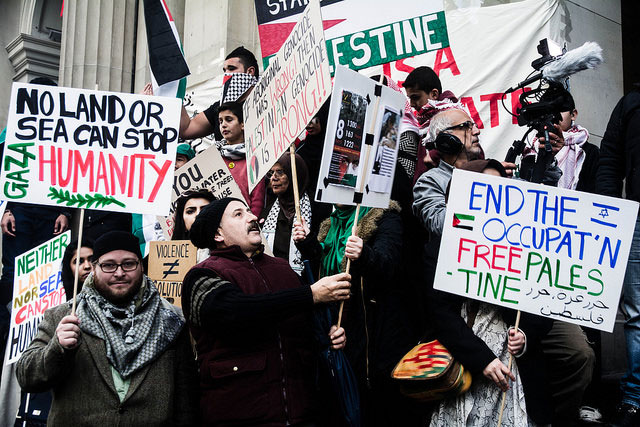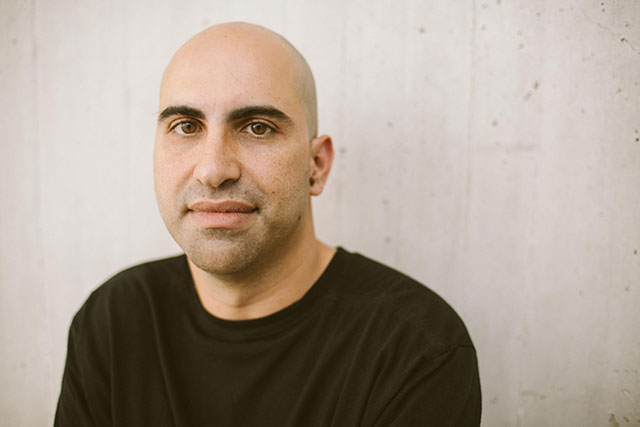
Did you know that Truthout is a nonprofit and independently funded by readers like you? If you value what we do, please support our work with a donation.
Steven Salaita, a Palestinian and an academic, makes the case for internationalism in initiating new societal and political structures that create a more just world. He focuses in his book Inter/Nationalism on the common bonds between Indigenous Americans and Palestinians in synergistically working together on decolonization. Truthout recently interviewed Salaita.
Mark Karlin: How do the current decolonization efforts of Palestinians and the Indigenous population in the United States share characteristics?
Steven Salaita: Those efforts are increasingly in conversation with one another, so they share both practical and philosophical connections. At a practical level, activists and scholars can cite Israel’s participation in genocide against Indigenous peoples in Central America as a way to understand that the state isn’t an abstraction or a distant concern. Israel also courts Native nations through a pretext of shared agricultural technology, something that has caught the attention of numerous Native activists. The role of the US in Israeli colonization is perfectly obvious to everybody. At a philosophical level, there’s a lot to unpack around the notion of “shared values” between the US and Israel, especially as the phrase lionizes a nearly identical version of Manifest Destiny, one that requires the erasure of native populations.
 Steven Salaita. (Photo: University of Minnesota Press)
Steven Salaita. (Photo: University of Minnesota Press)
Is it fair to say that there is an Israeli Exceptionalism in relation to Palestinians that is comparable to an American Exceptionalism in relation to Indians?
They are comparable but not identical. American exceptionalism is steeped in contradistinction to Blackness in addition to Indigeneity, and so it has intersecting histories that look a bit different than the landscapes Zionist settlers encountered (though anti-Blackness is fundamental to Zionism, as well). Where the two versions of exceptionalism really congeal, as I discuss in my chapter on Andrew Jackson and Vladimir Jabotinsky, is around the notion that the new nation, the benighted project, has no room for the Native except perhaps as a source of cheap labor. US and Israeli settlement are both particular about who can properly inhabit the nation and they both conceptualize themselves as agents of predestination.
Why should American Indian Studies be relevant to Palestinian solidarity?
Because, first of all, it should be relevant to anybody who cares about the well-being of the world. Beyond this general answer, when I pose this question in the book, I’m thinking mainly of the Palestine solidarity community in North America. Those of us who work to decolonize Palestine while in the US or Canada should be aware that we ourselves exist on colonized ground. With that awareness comes a need to be in solidarity with the Indigenous nations of North America. On a pragmatic level, our political vision in North America will always be limited if we don’t engage settler colonization and its aftereffects. I see this problem all the time in leftist analysis that either treats Natives as objects of the past or reproduces, if only tacitly, the conceits of modernity.
How can the Boycott, Divestment and Sanctions (BDS) movement against Israel become an “articulation” of Native nationalism?
By continuing to develop its focus on international sites of oppression. Palestine will always be the heart and soul of BDS, of course. But those of us somehow involved in it, or sympathetic to it, can produce all sorts of interesting analysis about its relationship to other activist movements. Inversely, BDS isn’t limited to Palestinians. People from around the world can and do participate, centrally in many cases. For example, BDS can become an articulation of Native nationalism because plenty of Natives are involved in it at the level of conception and strategy. In fact, I would argue that Indigenous peoples have been central to the success of BDS in its short existence. Their devotion to the movement has reinvigorated their commitment to the liberation of their own communities. Activism has a wonderful way of putting us in different parts of the globe only to evoke an even greater understanding of home. I’ve seen that play out with BDS among some of my Native friends and colleagues.
Historically, what are some examples of the US and Israel sharing a history of ethnic cleansing against Indians and Palestinians, respectively?
The US has given Israel billions of dollars and offers verbal, military and economic support to every Israeli war and invasion. The US is a central player in the ethnic cleansing of Palestinians. Israel’s role in the colonization and ethnic cleansing of Natives isn’t as severe or obvious. Israel certainly aided Central American dictators in their violence against Indigenous peoples, as I noted above, but much of the horrible work of North American colonization occurred before Israel came into existence. Now the two states are so intertwined that they share complicity in a wide range of global injustices. If the US government asked (or ordered) Israel to invade Hawaii, the IDF [Israel Defense Forces] would be on the islands in less than a day.
What are some key areas that Indians and Palestinians can engage in decolonizing Inter/Nationalism in solidarity?
Through the work already occurring on the ground, mainly. There have been huge protests recently in Lakota/Dakota country, at Standing Rock and elsewhere. There’s a vibrant movement for Hawaiian liberation. Anybody residing in Canada or the US is likely within a hundred miles of an active site of Native politics. And, of course, Palestine solidarity activism is everywhere these days. It’s important to explore these spaces, to turn up and listen, and learn and do the work required of allies to national liberation movements. That work will vary according to circumstance, but there’s always room in any of these spaces for eager and honest folks. We can also facilitate conversations and joint actions across national boundaries. We can continue to theorize international (and inter/national) forms of opposition to capitalism, racism, colonialism and so forth. The possibilities are endless, really. The more important thing, in my opinion, is to make ourselves available with humility and determination and to grow into these movements rather than demanding that they conform to our preferences.
A terrifying moment. We appeal for your support.
In the last weeks, we have witnessed an authoritarian assault on communities in Minnesota and across the nation.
The need for truthful, grassroots reporting is urgent at this cataclysmic historical moment. Yet, Trump-aligned billionaires and other allies have taken over many legacy media outlets — the culmination of a decades-long campaign to place control of the narrative into the hands of the political right.
We refuse to let Trump’s blatant propaganda machine go unchecked. Untethered to corporate ownership or advertisers, Truthout remains fearless in our reporting and our determination to use journalism as a tool for justice.
But we need your help just to fund our basic expenses. Over 80 percent of Truthout’s funding comes from small individual donations from our community of readers, and over a third of our total budget is supported by recurring monthly donors.
Truthout has launched a fundraiser to add 460 new monthly donors in the next 8 days. Whether you can make a small monthly donation or a larger one-time gift, Truthout only works with your support.
